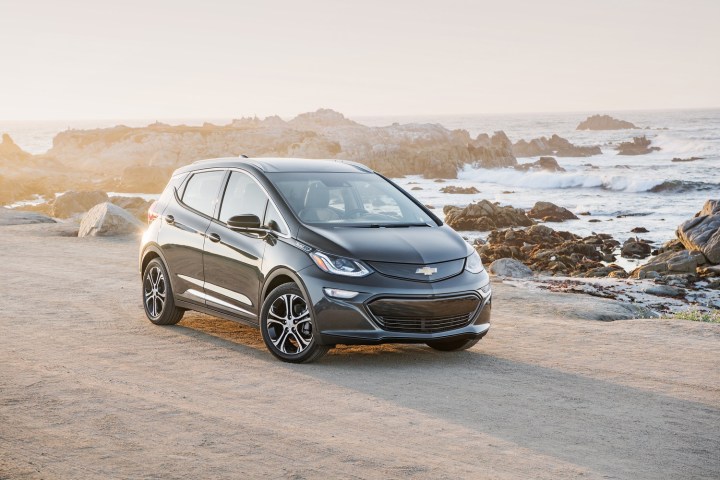
When it unveiled the production 2017 Bolt EV at CES earlier this year, GM confirmed that the electric car would start at $37,500, but it’s now tweaking that number a tiny bit. GM now says the Bolt EV will start at $37,495, a whole $5 less than it originally quoted. That price includes destination, but does not include the $7,500 federal tax credit GM expects most buyers to take advantage of. That drops the price down to $29,995.
That price is key, because it puts the Bolt EV and its 238-mile range within reach of the average U.S. new car buyer. Other electric cars in this price range, such as the Nissan Leaf, offer much shorter ranges. Only the much more expensive Tesla Model S and Model X currently offer ranges of more than 200 miles; the company’s $35,000, 215-mile Model 3 won’t start production until the end of next year.
The base Bolt EV LT model will come standard with features like a rearview camera, 10.2-inch touchscreen display, and Regen on Demand, which allows the driver to control the regenerative braking system using steering wheel paddles. The more upscale Premier model adds standard heated leather seats, surround camera system, and the streaming video rearview mirror first seen in the Cadillac CT6.
Both trim levels get the same electric motor (good for 200 horsepower and 266 pound-feet of torque), and a 60-kilowatt-hour lithium-ion battery pack. Chevy quotes a 0-to-6-mph time of “under 7.0 seconds,” and a top speed of 91 mph. The Bolt EV will be offered with a DC fast-charging system that can give it an 80-percent charge in 30 minutes, but Chevy hasn’t said whether this will be standard equipment.
Chevy won’t say exactly when the Bolt EV will go on sale, only that it will arrive at “select dealerships” late in the year. With less than four months left in 2016, expect the Bolt EV to show up pretty soon.
Editors' Recommendations
- 2024 Chevrolet Equinox EV: price, release date, range, and more
- Affordable is not enough. Here’s what Chevy’s new Bolt needs to nail
- The best EV charging apps help you find the right station for any electric car
- 2024 Chevrolet Silverado EV is an electric pickup built for work and play
- GM expands recall to all Chevy Bolt EVs due to fire risk


